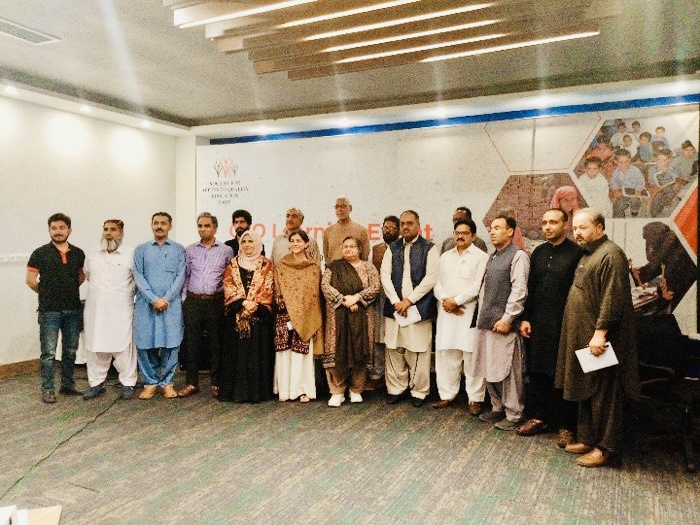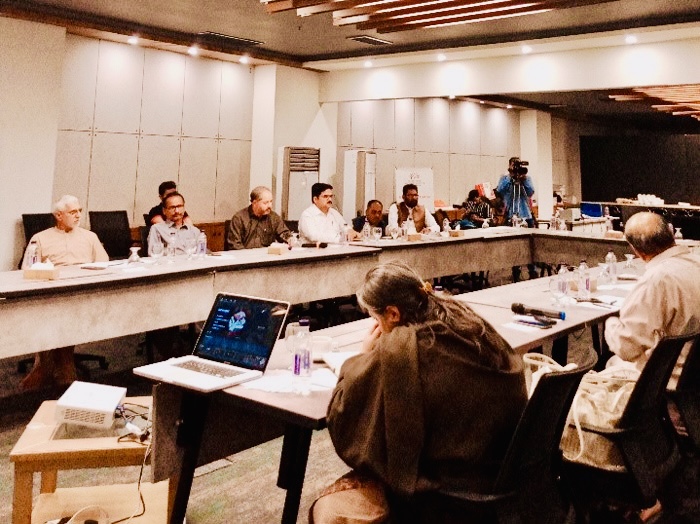

IDS has formed a strategic partnership with the Society for Access to Quality Education – a non-profit based in Islamabad advocating for reforming the education sector. IDS has been providing consultancy services to SAQE on various project ventures and has also been actively engaged in designing professional development and training programs for SAQE’s employees.
Following are some of the initiatives in which IDS has extended support to SAQE:
As the elections of 2024 approach in Pakistan, political engagement with citizens has also increased significantly. Hence, SAQE with support from IDS developed a 'Charter of Education' capturing demands for education reforms at the grassroots. Team IDS was involved actively in gathering and compiling the findings to form a coherent and impactful narrative and has endorsed the charter at all levels.
IDS assisted SAQE in the process of collection, validation, compilation and analysis of the data gathered for the Budget Tracking Activity. Data was collected from 12 Districts across Pakistan through various sources including one-on-one meetings with the District Education Offices (DEOs), education census reports and government data portals in July. The report aims to assess the degree to which education budget allocation and expenditure at the district level is gender-responsive, disability-inclusive, and disaster-responsive.
IDS has been engaged in providing support to SAQE in the management of its data portal. The major aim of the portal is to provide a repository of data on education-related themes. It seeks to encourage more informed and empowered citizens through readily available data. In addition, it seeks to make data more democratic and strengthen the role it plays in policymaking.
IDS has designed and delivered training sessions for SAQE that address emerging education sector issues, equipping members with the latest skills and knowledge to navigate through complex issues. IDS has also extended its support to SAQE for the successful conduct of its CSOs (Civil Society Organizations) learning events. IDS played a pivotal role in organizing and executing these events, which were held as part of SAQE's 14th annual convention.


A literature review of the global tobacco harm reduction and cessation programmes targeting vulnerable populations was undertaken with the support of the Foundation for a Smoke-Free World. The review focuses on the development of a survey tool designed to assess the unique needs of the different marginalised communities in Pakistan.
Tobacco consumption and substance abuse are global challenges fuelled by several factors. One million people worldwide die every year due to second-hand smoke. Up to half of the current users will eventually die of a tobacco-related disease, with many of these users living in low and middle-income countries. In Pakistan, 14.5% of tobacco users and 11.1% of cigarette smokers are uneducated, and approximately 29 million adults in Pakistan consume some form of tobacco. In 2019, the total cost of all smoking-attributable diseases and deaths in Pakistan amounted to Rs. 615.07 billion - with the burden of this cost being heavily gendered and being incumbent on geographical location and age. As tobacco use in religious and ethnic minorities and marginalized communities is not widely researched, accurate and current data sets are not yet available. This further highlights the neglect of the needs of these communities and the lack of adequate services for them.
To bridge this gap, IDS has conducted a “Health Needs & Demands Assessment” to investigate the trends of tobacco users in marginalized and vulnerable communities of Pakistan to reduce the barriers to quitting or switching to safer nicotine delivery systems. It includes assessing the size and nature of tobacco use, availability of cessation services, perception of needs, and the effectiveness of various clinical solutions. The assessment also explores the cost implications of providing alternate and safe options for tobacco reduction.